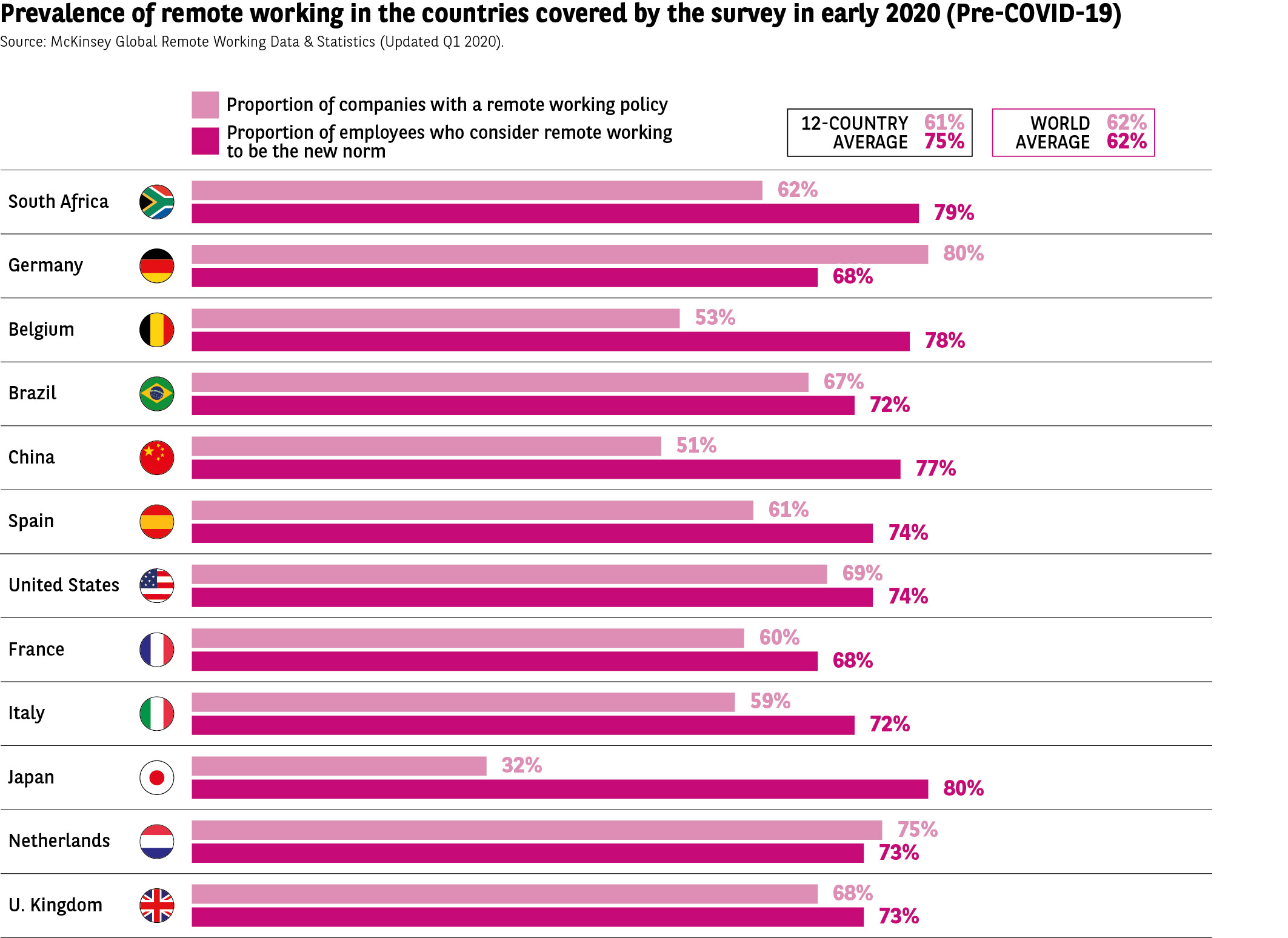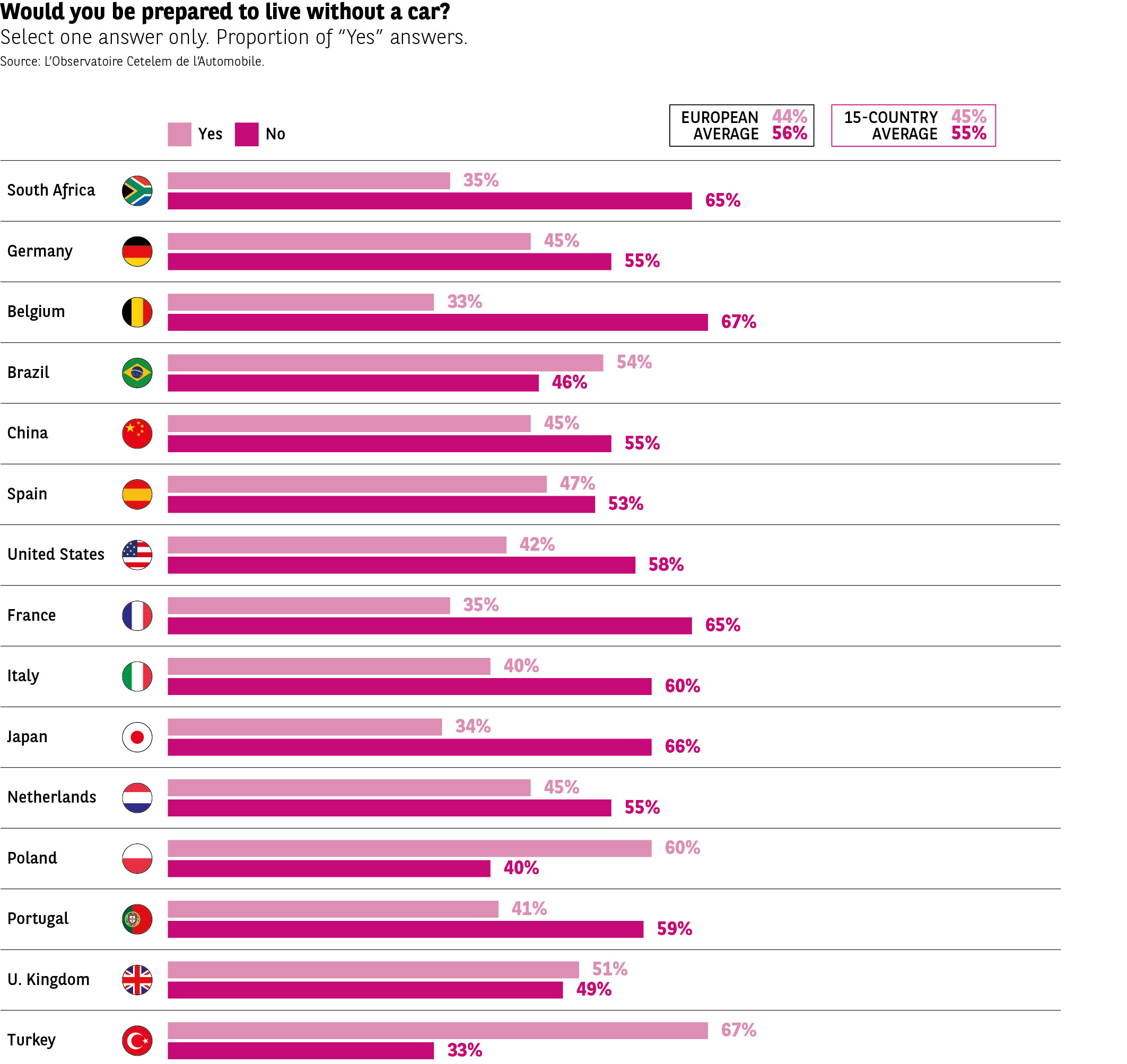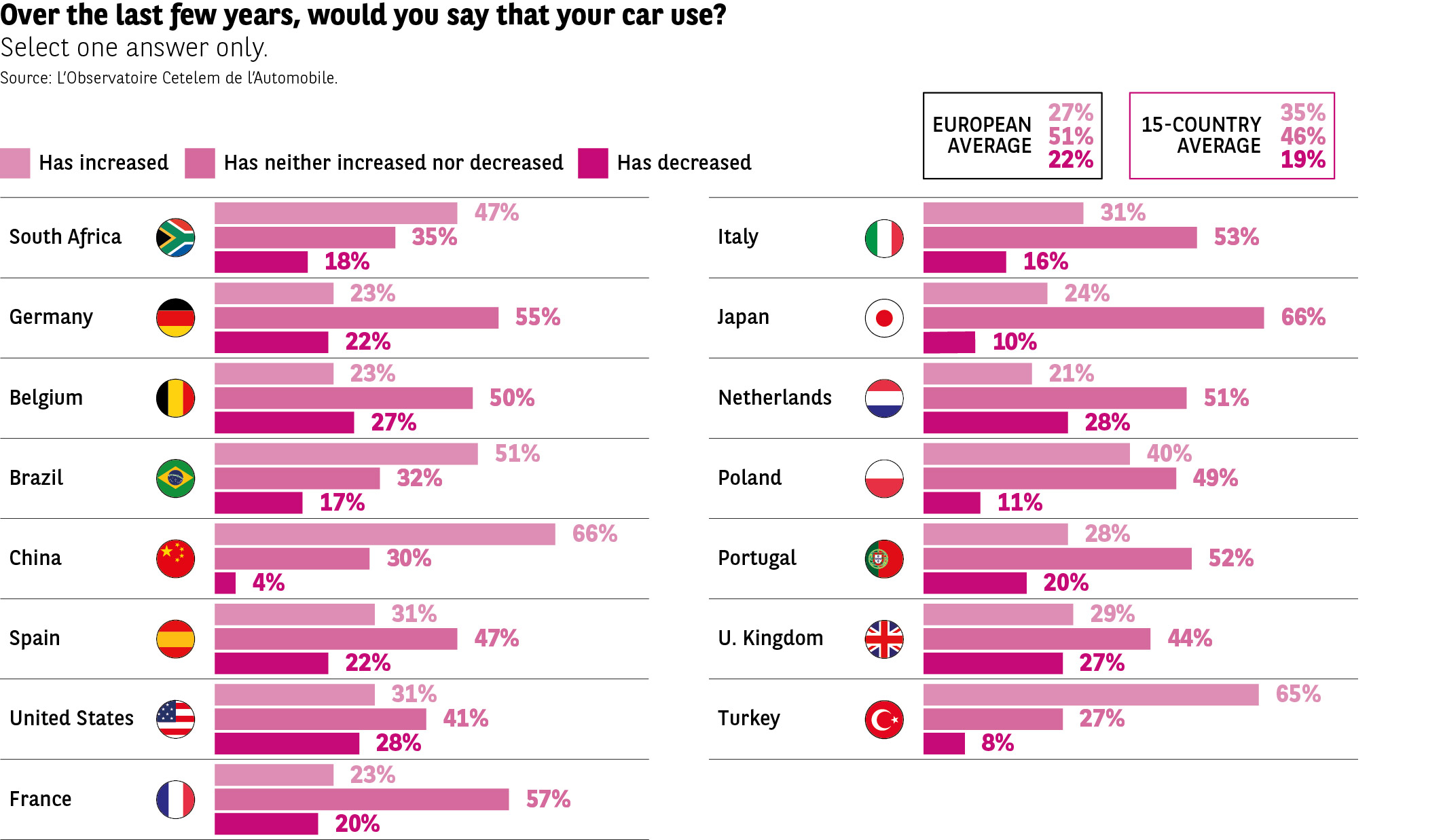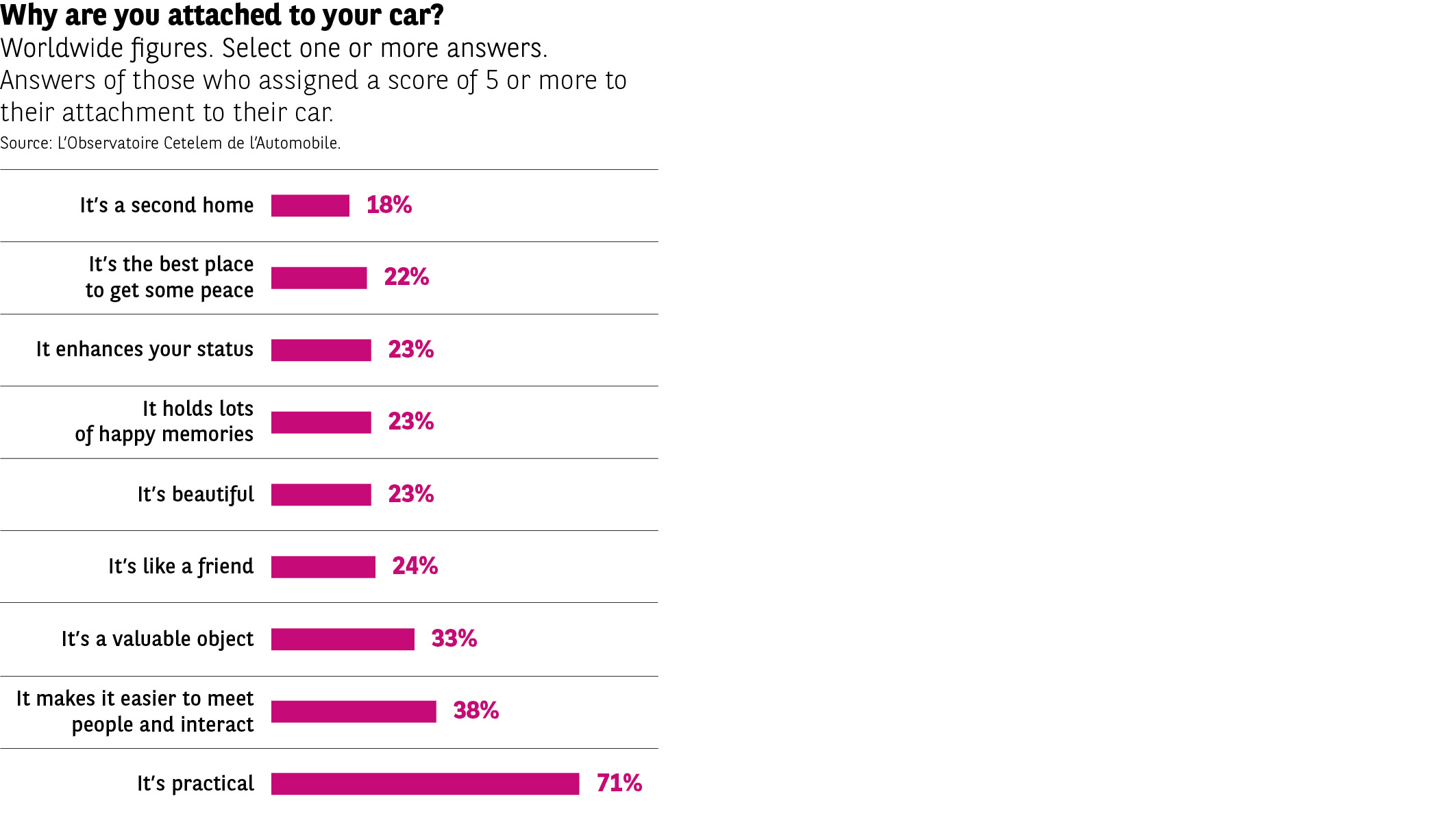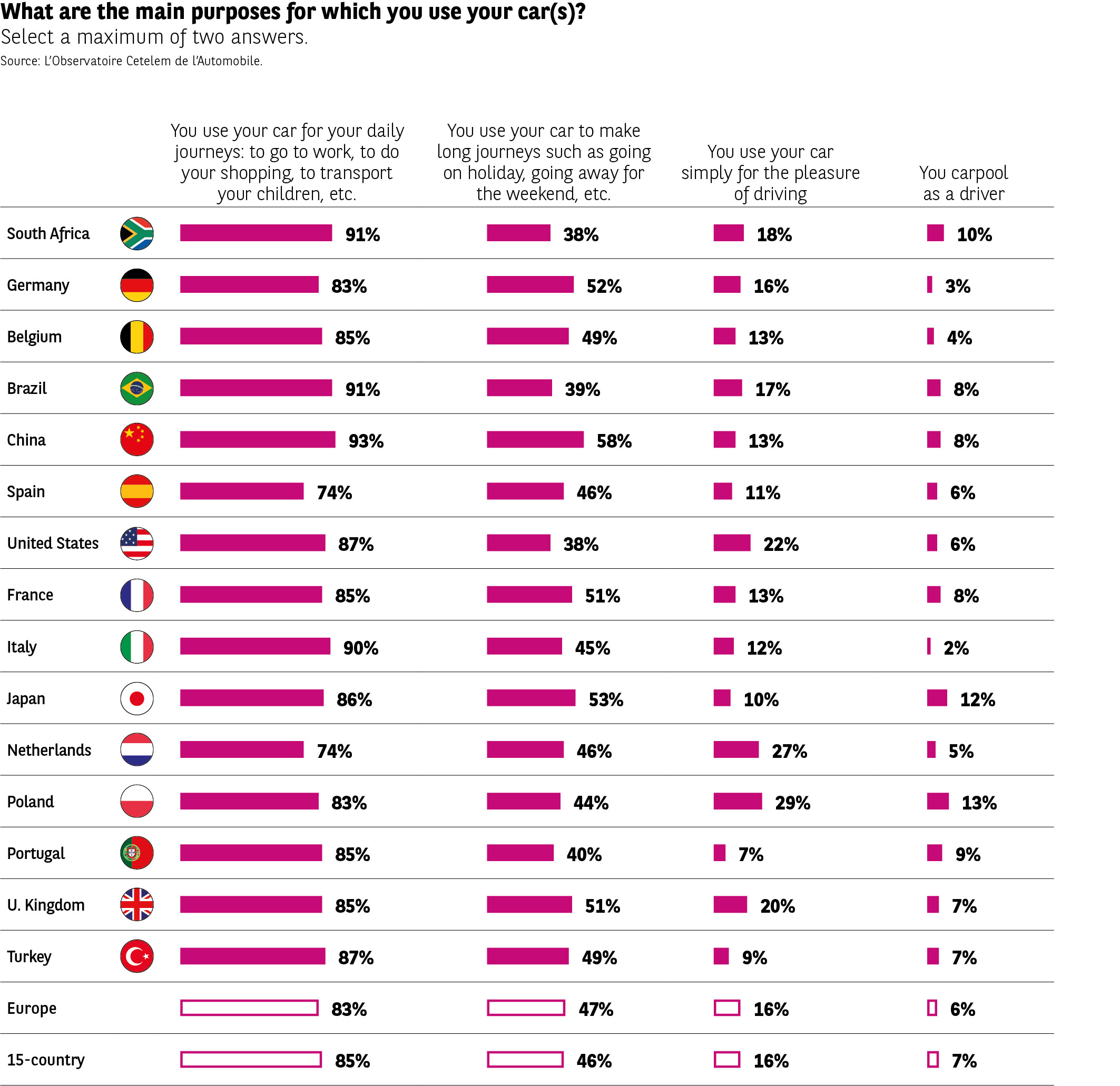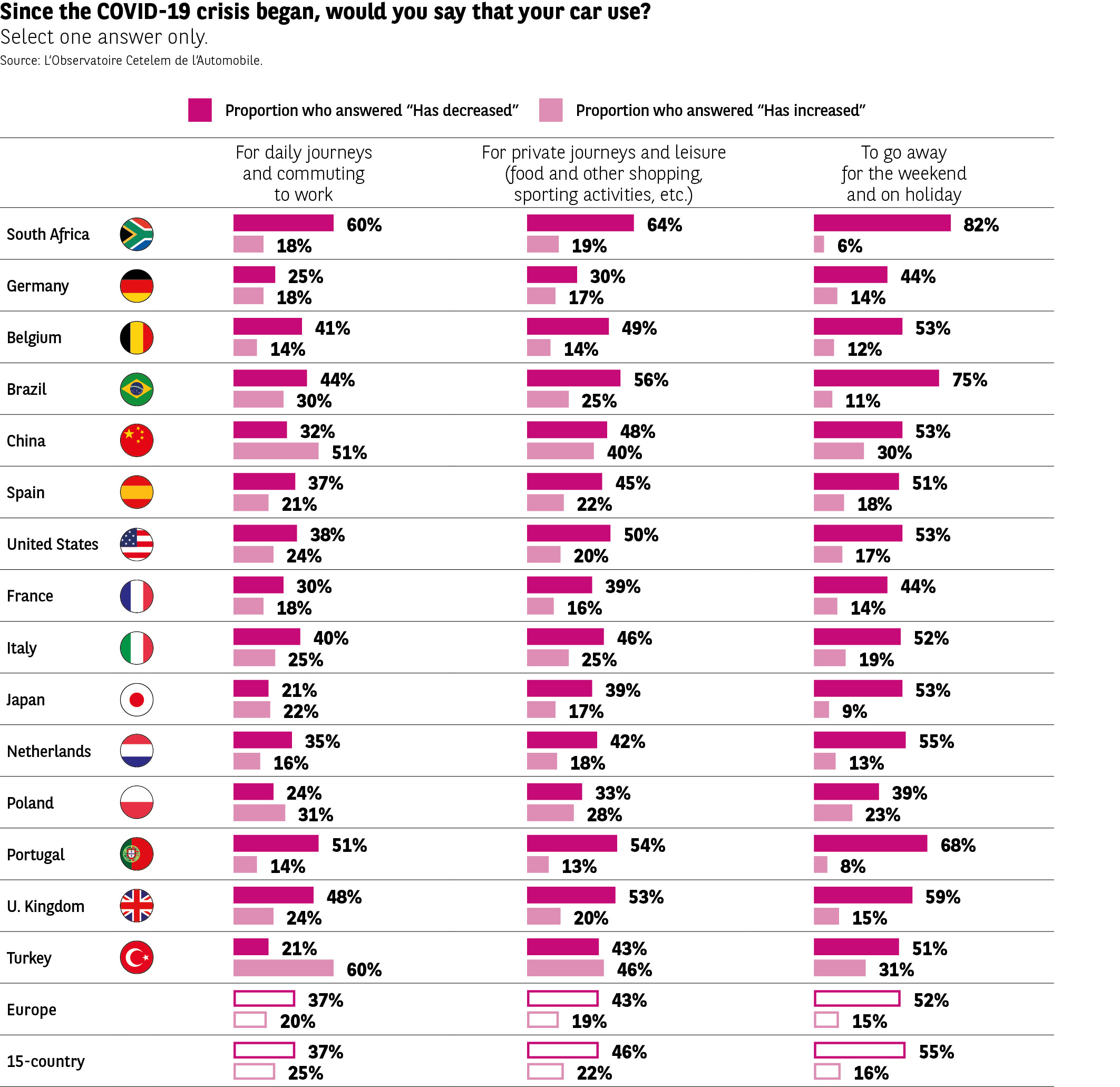Essential, especially for the day to day


Never without it
In a relationship, just because criticism, resentment and differences of opinion exist, that is not necessarily reason enough to consider living apart. That is what this Observatoire Cetelem teaches us on the topic of cars. Despite their criticisms of cars, nearly 6 out of 10 people cannot see themselves living without one (Fig. 20). However, the view that they are essential has lost ground since the 2017 survey, “I love my car”. 8 out of 10 respondents held this opinion at the time. But in a climate that has seen car bashing become more fashionable, the score remains relatively high. Two-thirds of French, Belgian, Japanese and South African respondents believe that life without a car is impossible. Conversely, the same proportion of Turks and Poles believe that it is something to aspire to. On this issue, the income factor again creates a great deal of segmentation. 53% of the wealthiest respondents cannot live without a car, compared with just 36% of individuals in the lowest income group.
Car use is stable overall, but it is rising in emerging nations
People’s relationship with their cars has remained stable. 1 in 2 people believe that they have used their vehicle neither more nor less over the last few years (Fig. 21). However, a detailed analysis shows that there are vast differences from one country to the next. Western countries display the greatest stability, while a significant increase in car use can been observed in the emerging countries, China and Turkey in particular. These two countries appear to have a love-hate relationship with cars, believing that they take up too much space, in every sense of the word, while also seeming incapable of giving them up.
Cars primarily fulfil a purpose
Above all, car use tends to be driven by pragmatism. If motorists are attached to their vehicles, it is chiefly for practical reasons (71%) (Fig. 22). It is interesting to compare this result with that obtained by the 2017 survey, when 9 out 10 respondents lauded cars for their practicality. The French are the most likely to point to practicality (82%), while the Chinese are less convinced (58%).
A stronger emphasis is placed on different criteria depending on the country. More than half of German, Polish and Brazilian respondents believe that their cars help them meet people and facilitate interaction. At the two ends of the GDP scale, equal proportions of South Africans and Americans view them as valuable objects. The Chinese are the most likely to see them as both a friend and a place where they can get some peace, suggesting an intimate and personal relationship with their vehicles in a country where collectivism is crucial. The South Africans share many memories with their cars. The Portuguese view them as a way of boosting their image.
An irreplaceable part of everyday life
Every day, car users are reminded of the services their vehicle provides. Whether it be for commuting, shopping or taking children to school, there is no alternative to cars in the eyes of 85% of respondents, with this view being particularly prevalent in the emerging countries, China and Italy (Fig. 23). Only the Spanish are a little less convinced of their day-to-day practicality (74%). This is such a dominant factor that one could almost forget their various other attributes. The ability to use one’s car for long journeys, e.g., during holidays, is only cited by 46% of respondents. The sheer pleasure of driving, meanwhile, is reduced to a measly 16%. Proof, once again, that practical concerns easily trump the notion of enjoyment.
The Covid crisis underlines this day-to-day practicality
The public health crisis has prompted lockdowns, restricted outings to those that are strictly necessary, caused public transport services to be shut down or reduced drastically, and led to remote working on a massive scale. These new “constraints” have transformed daily life, in some cases radically. Thus, this crisis, together with the changes it has imposed on lifestyles, has reinforced the view that cars are ultimately there for utilitarian reasons.
Individuals who have used their car less during this period have tended to reduce their daily journeys the least. 37% have driven less to fulfil their day-to-day requirements, compared with a 46% reduction for private journeys and leisure, and 55% at weekends and in the holidays. The same pattern can be observed in every country covered by the survey. Conversely, respondents who state that they have been using their vehicle more say that they have done so to meet their day-to-day needs (25% vs. 22% in the case of private journeys and leisure, and 16% in the case of weekends and holidays) (Fig. 24). Turkey and China stand apart in this respect, with respondents reporting that they have significantly increased their car use during the health crisis, primarily to meet their day-to-day needs (60% and 51%).
Remote working
The health crisis has placed a spotlight on remote working, especially in Western countries. It has transformed what was a growing trend among more and more companies into a real paradigm shift. While it is popular among many employees, this new way of working and organising workforces has not been implemented to the same extent across the board.
In Germany, it is already in place in 80% of companies. In France in 2019, 5.2 million people already worked remotely. In Japan, 33% of companies have deployed a teleworking policy. In the United States, remote working increased five-fold over the five years preceding COVID-19, with 25 to 30% of employees set to adopt the practice by the end of 2021.
Fig. 25 / Context:
Download this infographic for your presentations